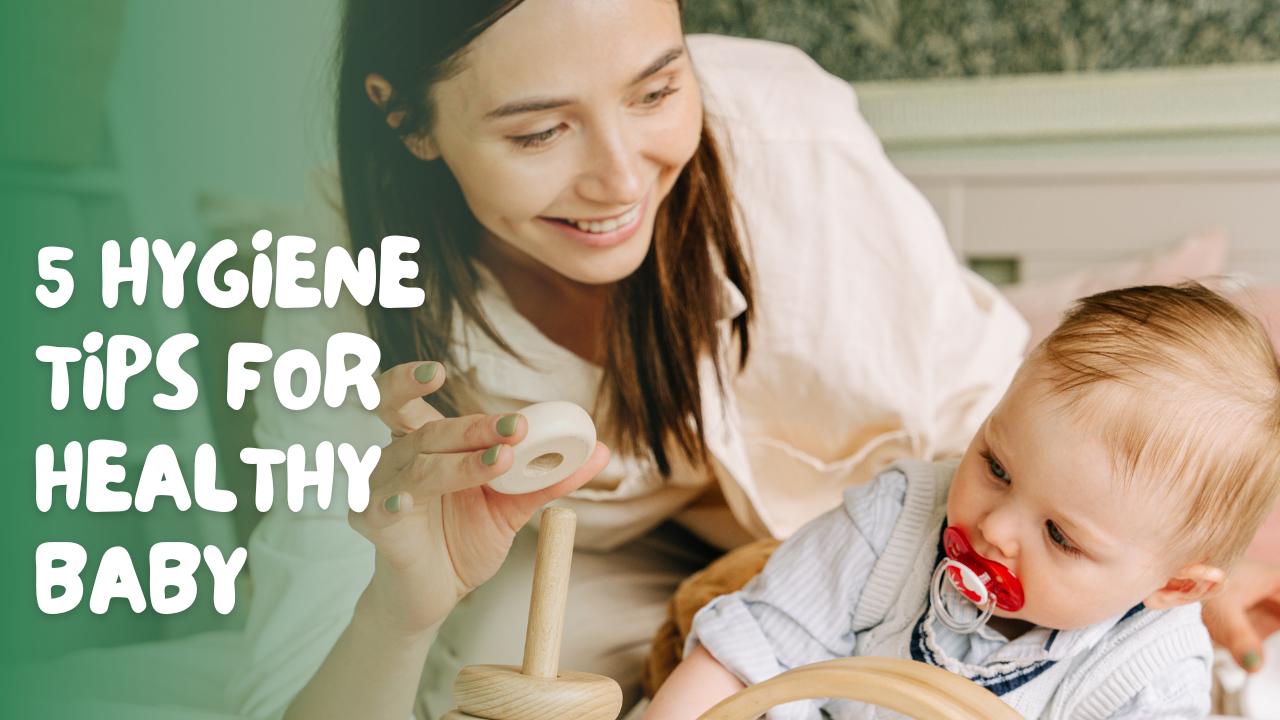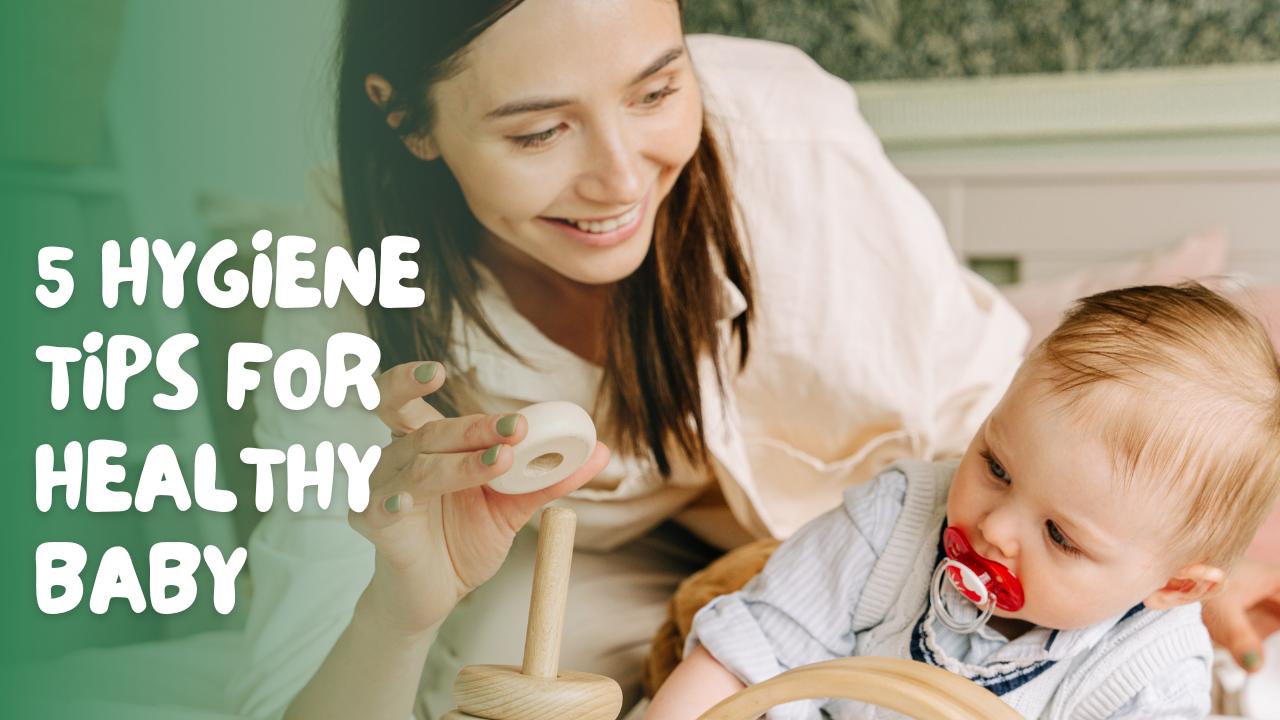Newborn babies are incredibly delicate, and their health and well-being depend on careful and consistent care, particularly when it comes to hygiene. In this blog, we will explore five essential hygiene tips for ensuring the health and happiness of your newborn baby. These newborn baby care tips will not only keep your little one clean but also contribute to their overall well-being.
Bathing Your Newborn:
When it comes to bathing your newborn, gentle care is paramount. To ensure your baby's comfort and well-being, use mild, fragrance-free baby soap and lukewarm water during bath time. Newborns have delicate and sensitive skin that can be easily irritated by harsh chemicals and strong fragrances found in some soaps.
By opting for a mild, fragrance-free baby soap, you minimize the risk of skin irritations and allergies, keeping your baby's skin soft and healthy. Lukewarm water is the ideal temperature for a baby's bath, as it is neither too hot nor too cold. Always test the water with your elbow or wrist to ensure it's comfortably warm for your little one.
Diapering Dos and Don'ts:
Diapering Dos and Don'ts are crucial for maintaining your newborn's hygiene and comfort. Here's a concise guide to help you navigate this essential aspect of baby care:
Do's:
Frequent Diaper Changes: Change your baby's diaper frequently, especially after feedings and bowel movements. Keeping your baby dry is essential in preventing diaper rash.
Choose the Right Diapers: Select diapers that are appropriate for your baby's size and weight. Ill-fitting diapers can lead to leaks and discomfort.
Diaper Cream: Apply a gentle diaper cream as needed to create a protective barrier against moisture and prevent diaper rash. Look for products with natural ingredients and no added fragrances.
Don'ts:
Delaying Diaper Changes: Avoid delaying diaper changes, even if the diaper isn't completely full. Prolonged exposure to moisture can lead to skin irritation and diaper rash.
Tight Diapers: Don't fasten diapers too tightly. Ensure they are snug but not overly tight to allow proper airflow and avoid discomfort.
Skipping Diaper Checks: Don't forget to check diapers regularly. Sometimes, babies may have smaller, less noticeable wettings that still require a diaper change.
Trimming your newborn's nails:
Trimming your newborn's nails is crucial to prevent scratching but requires caution. Use baby-safe clippers, choose a calm moment, and gently hold their hand. Avoid cutting too close to the skin to prevent accidental cuts or nicks. This simple practice ensures your baby's comfort and safety. Invest in specialized baby nail clippers or files designed to be safe for delicate infant nails. These tools are smaller and have rounded edges to reduce the risk of accidental cuts or nicks. Select a moment when your baby is calm, relaxed, and less likely to move abruptly. After a bath or during their nap is often an ideal time.
Oral hygiene :
Oral hygiene is an essential aspect of newborn care, even before their first tooth emerges. Oral hygiene for your newborn is a crucial practice, even before their first tooth makes an appearance. A simple yet effective method is gently cleaning their gums. After each feeding, use a clean, damp cloth or gauze pad to wipe your baby's gums. Always be gentle in your approach, as your newborn's delicate mouth needs a tender touch. By initiating these early oral hygiene practices, you're laying the groundwork for a lifetime of healthy dental habits for your child.
Handling Visitors:
Handling visitors when you have a newborn requires a delicate balance between sharing your joy and safeguarding your baby's well-being. A key practice is insisting on proper handwashing before anyone holds your baby. This simple measure significantly reduces the risk of transferring germs during those early months when your baby's immune system is still developing. By handling visitors thoughtfully, you create a safe and serene environment for your newborn, ensuring their health and your peace of mind during this special time.




